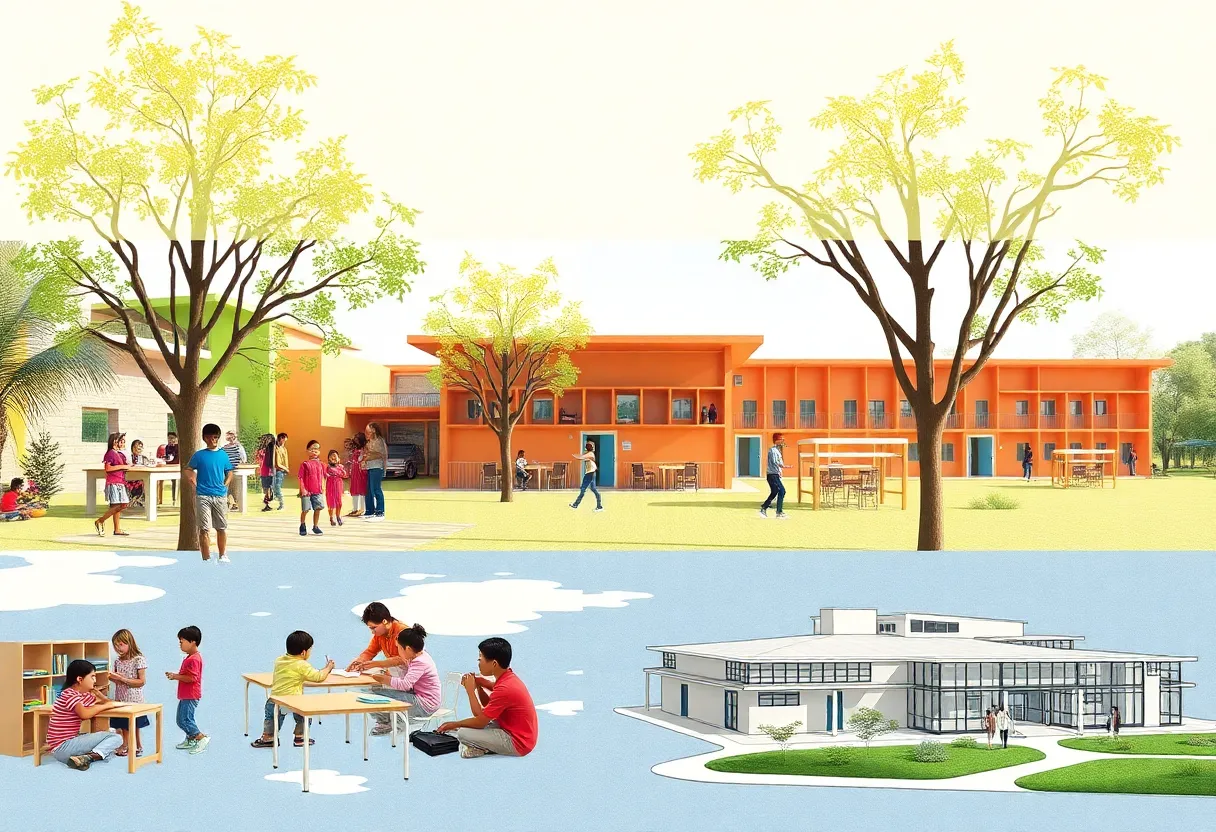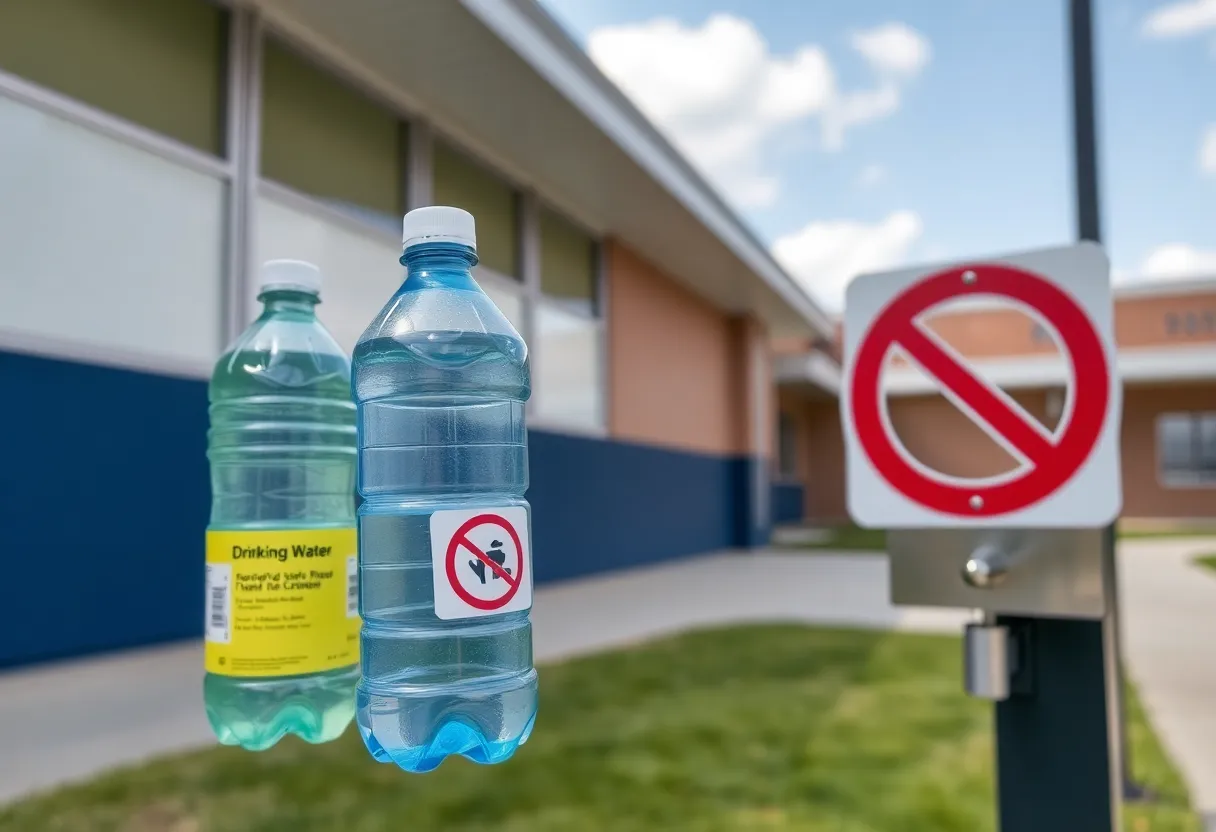News Summary
The Buncombe County Board of Education is addressing challenges from population growth in southern Buncombe County by considering expansion and capital projects. With new residential units planned, enrollment concerns have risen, especially in the T.C. Roberson district where class sizes have become a focus. The board is exploring financing options for necessary renovations, including potential bonds and adjustments to school policies, such as uniform requirements. Additionally, trends in homeschooling and alternative education have prompted discussions on adapting to changing educational landscapes.
Buncombe County Board of Education Plans for Expansion Amid Population Growth in Southern District
The Buncombe County Board of Education is proactively addressing the challenges posed by a growing population in southern Buncombe County. With approximately 1,100 new residential units planned in the T.C. Roberson High School district, board members are focusing on potential increases in local school enrollment.
Despite a trend of declining public school enrollment since 2020, the enrollment figures for Buncombe County Schools (BCS) have remained relatively stable in the T.C. Roberson district. However, the current school year showed a slight decline, attributed to factors such as Tropical Storm Helene. Historically, this district demonstrated an upward enrollment trend in previous years.
BCS Superintendent Rob Jackson has acknowledged the community’s concerns regarding school capacity and the impact of residential growth on local facilities. One key example is William W. Estes Elementary School, which is currently exceeding its physical capacity and utilizing modular units to accommodate its student body. Renovation plans are in motion to expand the school’s facilities further.
Board Vice Chair Amy Churchill, alongside concerned parents, has raised alarms about higher-than-average class sizes within southern Buncombe County elementary schools, prompting the board to consider prioritizing facility needs in its planning discussions. This is seen as crucial to effectively manage the anticipated increase in student population.
As part of an ongoing review process, the board is exploring options for financing necessary capital projects. One significant proposal under consideration involves borrowing funds through a schools general obligation bond, which would necessitate voter approval during a general election. This option comes in light of a pending state law that could impact how school districts fund such projects, highlighting the necessity for early planning.
In addition to facility expansion proposals, the school board has taken recent actions regarding school policies. The Buncombe County School Board has ended the uniform requirement at Charles T. Koontz Intermediate School after a student-led survey revealed that a vast majority of students, parents, and teachers opposed it. In another financial move, annual student parking fees at high schools have climbed from $60 to $80, the first increase since 2020. Waivers are available for low-income families to help alleviate the burden of this cost.
The school board’s discussions also touched on broader trends affecting education in the county. Notably, enrollment in homeschooling and alternative educational options, including charter and private schools, has substantially increased over the past decade, particularly during the COVID-19 pandemic. From the 2011-12 to the 2020-21 school years, the number of home schools in Buncombe County nearly doubled, making it clear that families are exploring various educational avenues. Approximately 1,500 students left the BCS system during the pandemic, indicating a significant demographic shift towards alternative education options.
Looking forward, the board aims to address the potential implications of the proposed NC General Assembly bill (HB400), which could further affect enrollment patterns and establish structural changes in the school districts. This proposed bill has raised concerns about potential challenges it may present in terms of coordination and governance between Buncombe County Schools and Asheville City Schools.
In response to the teacher shortage crisis, Buncombe County Schools are also implementing a program called “Grow Your Own,” aimed at drawing high school students interested in education careers into teaching roles within their local schools. This initiative reflects a commitment to ensure future staffing needs are met while inspiring the next generation of educators.
The Buncombe County Board of Education is poised to address a range of pressing issues and is actively working on strategies to ensure that the educational needs of the community are met amid rapid growth and changing circumstances.
Deeper Dive: News & Info About This Topic
HERE Resources
UNC Asheville Opts Out of House vs. NCAA Settlement
Asheville Academy Shuts Down Following Student Suicides
Asheville Teachers Celebrated by Local Baseball Team
Asheville Academy Announces Voluntary Closure Amid Tragedy
Asheville Academy Announces Voluntary Closure Amid Scrutiny
Asheville Academy Closes Following Student Suicides
Asheville Academy Closes Following Tragic Student Suicides
Asheville Schools Prepare for Budget Cuts
Asheville Faces Multiple Road Closures Due to Repairs and Flooding
Asheville Parks Reopen Following Hurricane Helene Damage
Additional Resources
- Mountain X: Buncombe County Board Focuses on Future Capacity Needs
- Wikipedia: Buncombe County, North Carolina
- WLOS: Buncombe County’s Grow Your Own Initiative
- Google Search: Buncombe County Schools
- Mountain X: Buncombe County Schools Enrollment Drops
- NC Newsline: First Tenants Move into Bertie County Schools Workforce Housing
Author: STAFF HERE ASHEVILLE WRITER
The ASHEVILLE STAFF WRITER represents the experienced team at HEREAsheville.com, your go-to source for actionable local news and information in Asheville, Buncombe County, and beyond. Specializing in "news you can use," we cover essential topics like product reviews for personal and business needs, local business directories, politics, real estate trends, neighborhood insights, and state news affecting the area—with deep expertise drawn from years of dedicated reporting and strong community input, including local press releases and business updates. We deliver top reporting on high-value events such as the Asheville Bread Festival, LEAF Festival, and mountain sports tournaments at Biltmore Estate. Our coverage extends to key organizations like the Asheville Area Chamber of Commerce and Explore Asheville Convention & Visitors Bureau, plus leading businesses in hospitality and brewing that power the local economy such as the Biltmore Estate and Sierra Nevada Brewing Company. As part of the broader HERE network, including HERECharlotte.com, HEREGreensboro.com, HERERaleigh.com, and HEREOBX.com, we provide comprehensive, credible insights into North Carolina's dynamic landscape.





